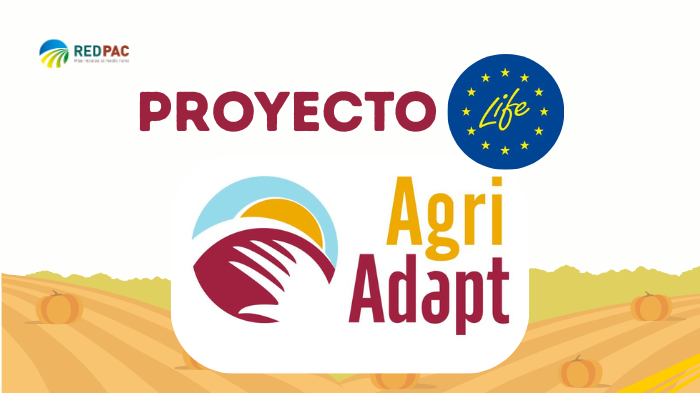
21 de May de 2025
The initiative works with local farmers to develop solutions tailored to each crop and region.
- The initiative works with local farmers to develop solutions tailored to each crop and region.
- The project focuses on soil improvement, water efficiency, biodiversity and technological innovation.
The Global Nature Foundation , together with various European entities, is promoting the LIFE project in Spain. "Adaptation to Climate Change in the Agricultural Sector" ("AgriAdapt") leads a practical and regional response to climate change in the Spanish agricultural sector. In the face of phenomena such as droughts, heat waves, and the increase in extreme events, this initiative seeks to strengthen crop resilience through strategies tailored to the characteristics of each farm.
The project's main objective is to facilitate and support farmers in incorporating adaptation measures based on agroclimatic knowledge. To this end, AgriAdapt works collaboratively with agricultural cooperatives in Castilla-La Mancha, Navarra, and the Valencian Community, in strategic crops such as vineyards, olive trees, cereals, and nuts.
Solutions adapted to the terrain
Using a local and participatory approach , the project proposes actions that combine technological innovation, sustainable agricultural practices, and efficient resource use. Key measures include:
- Soil improvement and water retention: The use of plant covers, organic amendments, and techniques such as direct seeding help conserve moisture, increase organic matter, and prevent erosion. These practices contribute to naturally improving soil structure and fertility.
- Technology at the service of the field: humidity sensors, digital tools, and precision irrigation systems optimize the use of water and nutrients, adjusting to the actual needs of each crop.
- More resilient varieties: Selecting species adapted to the local climate, along with the use of rootstocks and crop diversification, strengthens the plant's ability to respond to heat and water stress, as well as to pests and diseases.
- Promoting biodiversity: The installation of hedges, copses, and other green infrastructure creates a more balanced environment, promoting natural pest control and protecting crops from adverse weather conditions.
- Responsible use of resources: Techniques such as composting, drip irrigation, and integrated landscape management help close nutrient cycles and maximize water efficiency, especially in areas where water is a limited resource.
One of the project's most notable tools is the “ CANARI ” digital application , which allows the viewing of more than 100 Agroclimatic Indicators ( IAC ) and the assessment of future risks for different agricultural systems.
Results and proposals
The project, which will conclude in spring 2025, has already confirmed that sustainable adaptation to climate change in the agricultural sector is feasible .
Among the results obtained, more than 270 sustainable adaptation measures have been identified according to their impact on sustainability and successfully implemented. Although these have minor adjustments—depending on the region, farm, or agricultural system—they tend to be very similar across regions. These measures apply to the seven crucial elements:
- Land management.
- Nutrient management.
- Water management.
- Pest and disease management.
- Yields and benefits.
- Risks.
- Animal welfare.
Participants
The project, coordinated by the Lake Constance Foundation (Germany), brings together Spanish, French, and Estonian partners representing four areas affected by various climate risks. It has received 60% funding from the European Union (EU). In addition, in Spain, the Global Nature Foundation is supported by the Biodiversity Foundation of the Ministry for Ecological Transition and the Demographic Challenge of the Government of Spain, through a call for grants for projects that contribute to implementing the National Plan for Adaptation to Climate Change (2021-2030) .











